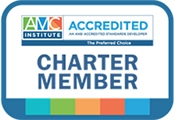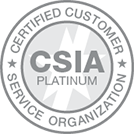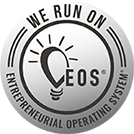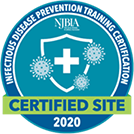Education and outreach enrich both communities and the people within them
Non-profit organizations often serve many functions. They might act as an education hub, offer professional certifications, or provide opportunities to assist in setting the standards for their industries. And alongside all of these roles, they also often provide a sense of community and mutual benefit to both those within the organization and the broader communities within which they travel.
Some organizations even exist primarily as entities that serve a distinct community. Two such examples are the Commission for Case Manager Certification (CCMC®) and the International Consumer Product Health and Safety Organization (ICPHSO), both of which provide assets to support and improve the health and wellness of countless people.
CCMC: Leveraging Case Management for Community Health
CCMC is the Commission that oversees the administration of the Certified Case Manager (CCM®) and Certified Disability Management Specialist (CDMS®). “CCMC works to support the broader community of case managers by providing them with continuing education to renew their certifications but also by keeping them up to date on what’s going on in the field and in the community,” said Vivian Campagna, DNP, RN-BC, CCM, Chief Industry Relations Officer for CCMC. By ensuring it offers the most relevant education for what’s currently going on in the world, CCMC enables case managers to provide needed services to their client populations.
Through certification preparation courses, CCMC helps certificants learn what they need to know to become certified and provide high-quality care to clients. And through continuing education (CE) courses, CCMC provides its certificants not just a way to gain the 80 CE credits required every five years to maintain their certification but a way to keep up with the latest trends in healthcare.
And through supplementary materials like “Long COVID and the workplace,” an article featured in the January 2022 edition of the CCMC IssueBrief, the organization helps guide its community with the latest information on how to address previously unknown healthcare issues. People suffering from long COVID, the medical term for which is post-acute sequelae of COVID-19 (PASC), are in urgent need of assistance from case managers who can help them navigate a laundry list of symptoms, support them if they face any skepticism about those symptoms, and ensure they receive the temporary disability protections provided by the ADA, if applicable to their situation.
Utilizing Technology to Foster Community
Communities’ needs fluctuate in response to the world around them, so like many organizations, CCMC transitioned to virtual courses during the pandemic. Its Certification 360 course, which prepares certificants for their exams, was fully virtual in 2021. But what began as an adaptation evolved into a benefit, as the flexible scheduling of virtual courses increases student access to them.
There are other ways in which technology can enhance community access to resources. “The Commission launched the CMLearning Network as a learning hub where people can expand their knowledge and find continuing education for their certification and other professional credentials,” said Janelle Lerza, CCMC Assistant Vice President. “The CM Learning Network as a whole is a professional development resource.”
Community-Focused Education
The CE courses offered by CCMC cover a range of topics. Some of them address subjects that target care for individuals, but others are specifically designed to improve communities large and small.
“Ethics in Palliative Care: Patients and Families Who Want Everything” teaches case managers how to guide patients, their families, and their caregivers through planning for palliative care, including navigating conflicting desires for types of care. This strengthens the small community of a family unit as it works through a difficult event together.
Meanwhile, other courses address the concerns of a broader community. “Creating Healthy & Equitable Communities: A New Social Compact for Health” provides case managers with the information they need to refine their advocacy skills to empower clients and their families to request more health and social services in their communities, an issue that has been highlighted by the disproportionate effect the COVID-19 pandemic has had on communities of color.
Providing varied educational options like these is key to supporting the community of case managers and, resultantly, the communities that case managers themselves support. “CCMC keeps case managers abreast of what’s happening now, what’s coming in the near future, and where things are going in the long term,” Campagna said. “We need to ensure they have the right information at the right time to be able to continue to serve their patients effectively and appropriately.”
ICPHSO: A Community Built Around Consumer Safety
ICPHSO is another organization that works to support its community, though in a very different way. While it does incorporate educational initiatives as part of its regular slate of activities, its greatest strength is in bringing people and groups with ostensibly competing interests together for a common cause. Participants are widely varied—they include everyone from manufacturers of consumer products, consumer advocates, and product safety monitoring agencies from governments all over the world to attorneys, non-profit organizations, product testing labs, and standard-setting bodies.
“It’s the only forum that brings together the disparate organizations who are involved in consumer product safety,” said Michael Dwyer, CAE, Chief Executive Relationship Officer at Association Headquarters. “There’s no other organization quite like it in the world.”
Meetings of the Minds
To facilitate dialogue and education among all of these different parties who, despite their shared goal of consumer product safety, may have competing interests, ICPHSO annually hosts both a U.S.-based Annual Meeting and Training Symposium and an International Symposium, which is held in various countries throughout the world. What’s more, it also hosts an annual regional training workshop. These are often hosted by a member, such as Best Buy or Home Depot, and provide attendees the opportunity to see the corporate headquarters of a major company in action.
The symposium in the U.S. offers attendees the opportunity to hear the U.S. Consumer Product Safety Commission (CPSC) discuss their agenda, and it also offers panels that include speakers from many different backgrounds.
“You might have a panel that has a consumer advocate, a manufacturer, a trade association, an attorney, and a testing lab. They’re all talking about the same idea—but from five different perspectives,” said Dwyer. “So as an audience participant, no matter what your responsibilities are, you’re going to get a very broad perspective on a specific issue related to product safety. And that’s really what it’s all about.”
On the other hand, the symposium that is hosted internationally focuses on bringing the global product safety community together. There are standard-setting bodies for product safety, such as ASTM International (formerly known as American Society for Testing and Materials) and the International Organization for Standardization (ISO), but not every country follows the same standards.
“There are always efforts to try to streamline the standards so that, for example, a global manufacturer of strollers that sells strollers in 50 countries can make one product that meets everybody's standards,” Dwyer said.
Broadening Communities Through Mentorship
For the 2022 ICPHSO Annual Symposium, taking place in February, the organization is debuting its new mentorship program, which provides fully funded trips to the meeting for students at the undergraduate level and higher who are interested in consumer product safety.
Students will receive one-on-one guidance with their mentors before, during, and after the symposium. Their mentors will be introducing them to other safety professionals, giving them firsthand information about the community as a whole, and even guiding them on how to interact with other professionals. Importantly, mentors will also advise students on how to pursue a career in product safety and will routinely check in with the students after the symposium. Establishing a system of long-term support for people interested in the industry can further strengthen the bonds of a community that everyone in the world relies on for safety.
A Community That Grows Together Stays Together
Whatever an organization’s purpose, a robust community helps it to evolve, grow, and achieve its goals. By facilitating education that people can bring with them into their individual communities, providing dialogue that allows groups with different perspectives to learn from one another, and offering opportunities for personal connection on both micro and macro levels, organizations are in a prime position to improve the health, safety, and quality of life in every community they touch.




